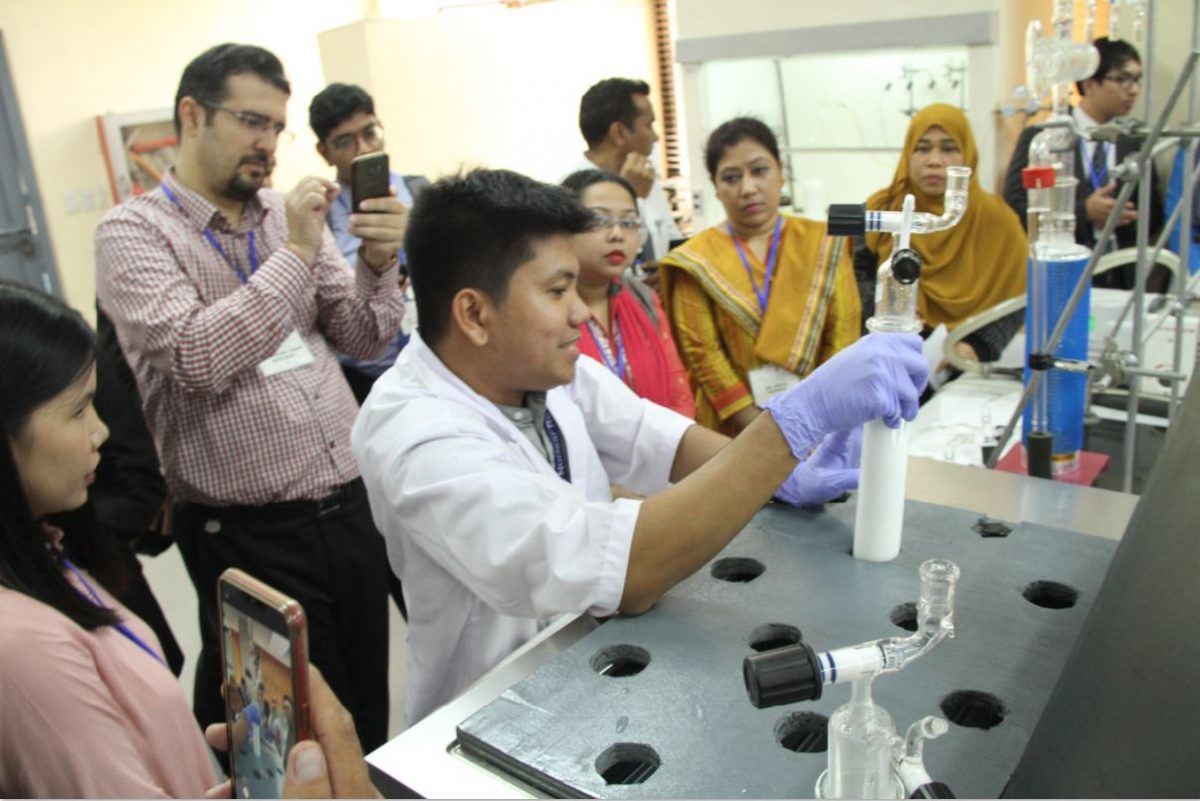Filipino chemists develop abaca-based non-woven fabric to filter water pollutants
By: Eldan Sambatyon
|
Published on: January 8, 2020

Abaca-based non-woven composite fabric can be used to filter water pollutants.
Filipino chemists have invented an abaca-based non-woven fabric that can help save the environment from toxic pollutants and contaminants.
The leading chemists from the Department of Science and Technology – Philippine Nuclear Research Institute (DOST-PNRI) used our very own abaca to make a fabric that can filter heavy metals and toxic materials from wastewater.
The scientific invention, created by a team led by Dr. Jordan Madrid of the DOST-PNRI Chemistry Research Section, was the Regional Winner for the Outstanding Utility Model Award during the 2019 DOST Regional Invention Contests and Exhibits (RICE) in the National Capital Region held last November, 2019.
The researchers developed a composite non-woven fabric from natural abaca fiber and paired it with synthetic polymers that can filter and capture heavy metals dissolved in liquid such as lead, cadmium, nickel, chromium, mercury, and arsenic which bad for the environment and hazardous to health and cause heavy metal poisoning to people.
The composite materials are actually grafted together with the use of radiation, using the Electron Beam Irradiation Facility at the PNRI; then goes through further processing into its final form as a synthesized filter for heavy metals.

During a training course hosted by the Philippines under the International Atomic Energy Agency, representatives from various countries in the Asia-Pacific region observe as a researcher demonstrates radiation grafting procedures at the PNRI Chemistry Research Section. Photo from DOST.
Studies by the PNRI Chemistry Research Section showed very positive results since the fabric material they created are reusable and much cheaper compared to other commercial resins that have the same purpose, and having equal, if not better function in filtering toxic waste.
Radiation can be used to modify materials and graft various polymers that can have advanced properties such as filtering various contaminants from water. Radiation grafted materials are expected to prove useful for various industries, particularly those requiring waste water treatment.
The International Atomic Energy Agency (IAEA) expressed their interests and engaged in a project with the Philippines and other countries for the increasing use of these technologies to minimize hazardous pollutants in various bodies of water in the Asia-Pacific region.
PNRI researchers are looking forward to the development of other applications of radiation grafting such as producing biodiesel and recovering precious metals.
Filipino scientists have invented the Abaca-infused SWAN Amphibious Vehicle for disaster rescue.
Roofing for tricycles made of abaca have also been invented by DOST-supported scientists.
SEND cheers in the comment below to the Filipino chemists and science researchers who are innovating to help the environment!
Want to know how to be a Proud Pinoy? Like, Follow, Subscribe to GoodNewsPilipinas.com and our socials Facebook, Twitter, Instagram, Good News Pilipinas! TV on YouTube, for new story notifications and e-mail newsletters for updates on more Filipino Pride stories.